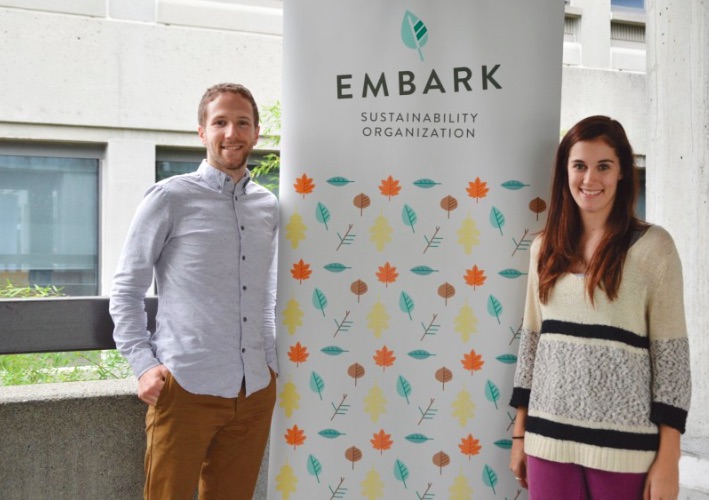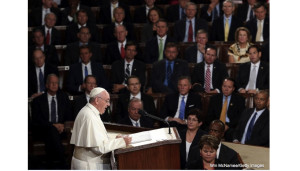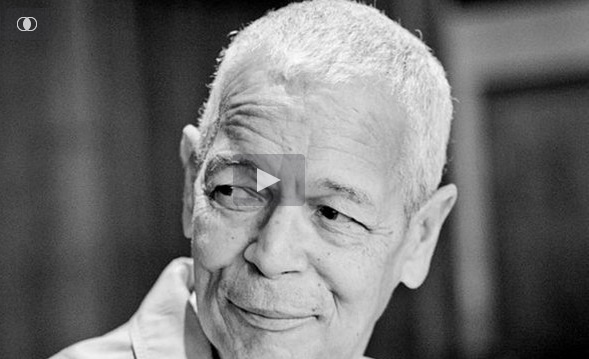. . SUSTAINABLE DEVELOPMENT . .
An article by Emma Warner Chee, The Peak, SFU student newspaper
In light of the 50th anniversary of SFU [Simon Fraser University], Embark (formerly Sustainable SFU), SFU 350, and Divest SFU believe it is the perfect time for the university to become a leader in the climate justice movement, starting with a divestment from the fossil fuel industry. The groups are collaborating to launch a divestment campaign this fall that will see various actions and events in the months to come.

Embark is among three student groups pushing SFU to divest from fossil fuels. Image Credit: Lisa Dimyadi
The extraction and consumption of fossil fuels account for the greatest level of carbon emissions by humans, and are thus the greatest threat to the climate. A report from the UN’s International Panel on Climate Change last year indicates that if carbon emissions are not drastically reduced by 2017, and global temperatures rise by just two degrees celsius, the effects of climate change would be irreversible.
As fourth-year environmental science student and Divest SFU campaigner Tessica Truong pointed out, the impacts of climate change are already being felt in the global south.
Sea levels and temperatures are rising, land is disappearing, drought is causing food insecurity, and the occurrence and severity of natural disasters is increasing, all of which are causing displacement and creating climate refugees.
Truong stated, “It is unethical to be profiting from fossil fuels as an educational institution, when the effects of fossil fuels on the climate are being paid for by others around the world.”
Started in 2013, the Divest SFU campaign was created to petition the SFU Board of Governors to take their endowment fund investments out of the fossil fuel industry in an effort to limit the growth of the industry.
(Article continued in the right column)
See comment below.
(Article continued from the left column)
They approached the board in the spring of 2014 with the backing of student groups on campus as well as many faculty members, some showing their support by signing off on an open letter to administration.
The university consequently adopted the United Nations’ Principles for Responsible Investment and also created the Responsible Investment Committee in 2014, the latter of which aims to “review and make recommendations related to responsible investment proposals,” among other responsibilities.
Following the presentation, SFU released this statement from former VP Finance and Administration Pat Hibbitts: “The Divest SFU students made a compelling case about the role of investment in economic policy and we considered their request seriously.” She continued. “This new policy provides for governance of our investment strategy consistent with the UN PRI and our investment objectives.”
However, as Divest SFU sees it, no definitive action has been taken toward divestment, and the campaign continues.
Divestment from fossil fuel campaigns have been taking off in universities across Canada, the United States, and Europe. Stanford University, for instance, has been successful in convincing their board of governors to divest from the coal industry, and is now working toward divestment from all fossil fuels.
At McGill University, students set up a tent city on campus to protest the university’s fossil fuel investment. UBC350 held a referendum in which 77 per cent of students and 62 per cent of faculty voted in favour of divestment. Other institutions, such as Vancity credit union, proudly state that they are not invested in the fossil fuel industry.
One of the main arguments against divestment is that with the world’s already heavy reliance on fossil fuels, it won’t change anything.
Truong acknowledged that “SFU alone will not stop fossil fuel industries, but we do have the power to change the direction, and show leadership.”
(Thank you to Janet Hudgins, the CPNN reporter for this article.)








